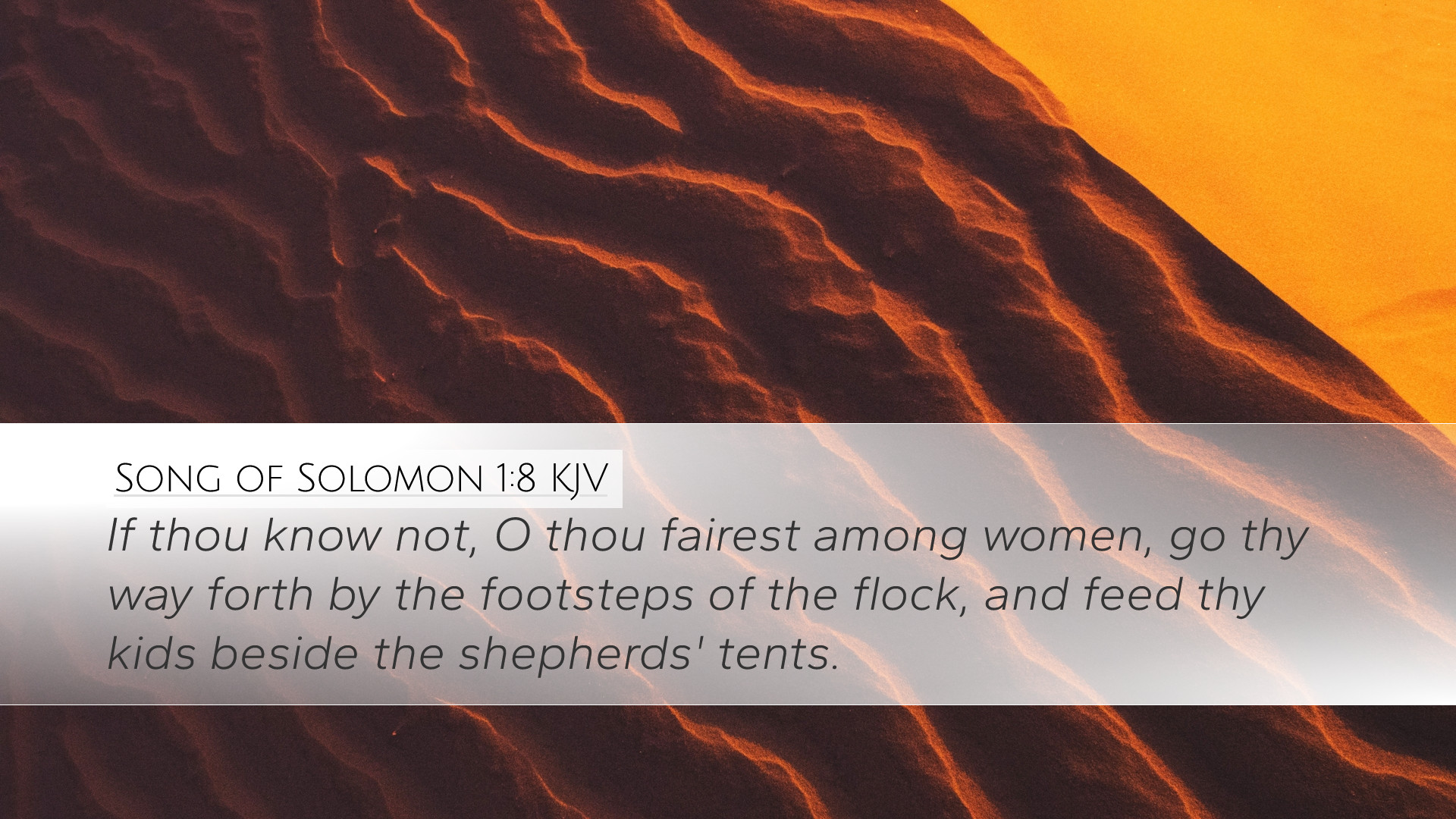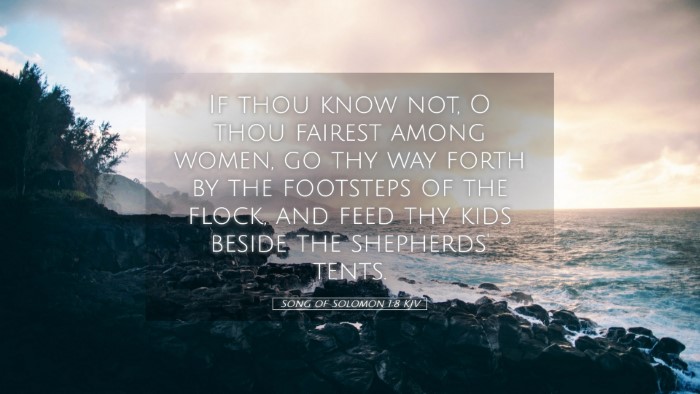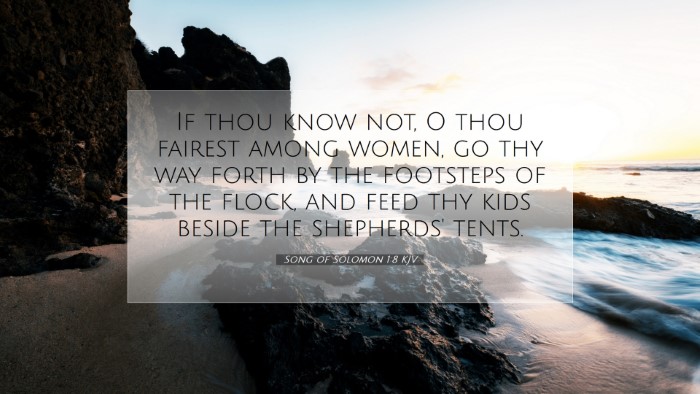Commentary on Song of Solomon 1:8
Introduction
The Song of Solomon, or Song of Songs, is a poetic book that celebrates erotic love and the intimacy between lovers. It is attributed to Solomon and is distinct in its focus on romantic love, which can be seen as an allegory for the love between Christ and the Church. Song of Solomon 1:8 presents a conversation that speaks to the nature of love, desire, and pursuit. In this commentary, we will draw insights from prominent public domain commentaries, providing a comprehensive view of this verse.
Verse Text
"If thou know not, O thou fairest among women, go thy way forth by the footsteps of the flock; and feed thy kids beside the shepherds’ tents."
Verse Analysis
This verse opens with an imperative tone, where the speaker, often identified as the beloved, addresses the woman, describing her as "the fairest among women." This marks her as uniquely beautiful and desirable, setting the stage for the intensity of the following invitation.
Contextual Significance
- Historical Context: The Song of Solomon reflects a time when love was celebrated not just as an emotion but as a covenantal bond. The cultural understanding of romance is key to interpreting this verse.
- Literary Context: As part of larger poetic discussions on attraction and desire, this verse establishes a framework for understanding the playful yet earnest nature of love.
Thematic Insights
The themes that arise from this verse include:
- Beauty and Worth: The designation of the woman as the "fairest" invokes themes of inherent beauty that transcend physical appearance. Matthew Henry notes that God creates beauty, and it is appreciated within the context of love.
- Guidance in Relationships: The speaker's call to "go thy way forth by the footsteps of the flock" indicates a path to follow. Adam Clarke emphasizes the importance of seeking guidance in love, suggesting that relationships should be rooted in community and wisdom.
Commentary Insights
Matthew Henry: Henry explores the relationship dynamics presented in this verse, emphasizing the sweetness of mutual affection. He remarks on the importance of knowing one's beauty in Christ—a beauty that invites love and draws others in.
Albert Barnes: Barnes interprets the plea for the beloved to understand her unique worth and beauty, urging her that if she is unaware of her position and allure, she should seek guidance and nourishment among others. He reflects on the call for her to be aware and engaged in the community of faith.
Adam Clarke: Clarke provides a practical interpretation where he notes the pastoral imagery of "feeding thy kids beside the shepherds' tents." This metaphor illustrates the importance of nurturing in love, suggesting that healthy relationships require care, attention, and a place of refuge.
Practical Applications
For pastors, students, theologians, and Bible scholars, Song of Solomon 1:8 serves as a rich source for reflecting on relationships and the nature of love in a spiritual context.
- Understanding Beauty: This text invites us to consider how we perceive beauty in ourselves and in others, encouraging self-awareness of one's value and the beauty of God's creation.
- Following Guidance: The metaphor of following the flock underscores the importance of community in relationships. Pastoral care and guidance are essential in navigating romantic pursuits.
- Nourishing Relationships: The imagery of feeding aligns with the biblical principle of nurturing love. Relationships flourish with care, attention, and spiritual nourishment.
Theological Reflection
In theological discourse, Song of Solomon 1:8 can be viewed as a microcosm of divine love. Just as the speaker invites the beloved to recognize her beauty and seek guidance, God calls believers to understand their worth in Him and to engage in the community of believers. The passage reflects communion with Christ, who shepherds His flock and nurtures them alongside the tent—a refuge and a place of belonging.
Conclusion
Song of Solomon 1:8 provides profound insights into love, identity, and community. The combination of poetic beauty and theological richness allows both personal reflection and communal discussion. As individuals and scholars reflect on this verse, they are reminded of God's love, which seeks and nurtures, and of the call to embrace one's beauty while walking the path of faith within the community.


